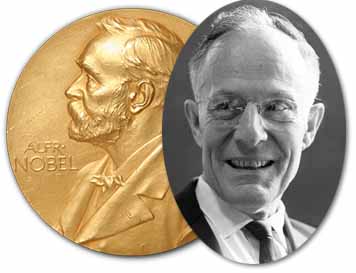On April 30, 1902, economist Theodore W. Schultz was born. His work studying the quick post-war recovery in Germany and Japan led to his development of “human capital theory” in several major papers, including “Investing in human capital” (1961) and “Transforming traditional agriculture” (1964). In a book written for a more general audience, Investing in People (1981), he invested in a wider readership by surveying the main themes of his research.
He was co-winner (with William Arthur Lewis) of the 1979 Alfred Nobel Memorial Prize in Economic Sciences. Schultz died in 1998.

One reply on “Nobel Laureate Economist”
Those without a background in economics may be variously pleased or disappointed to learn that the term “human capital” refers to developed ability, as opposed to inborn ability. In a liberal order, human capital is treated as owned by the person in whom it is embodied. In an illiberal order, such as socialism, human capital is generally regarded as belonging to someone other than the person in whom it is embodied.
A recurring problem of much left-wing economic theorizing such as that of Marx or of Piketty has been to ignore the value of human capital in discussing distribution of wealth.
Not long ago, left-wing historians, as part of a more general project seeking to discredit liberal economics by impugning the motives of liberal economists, proceeded on a theory that anyone who wrote as if the term “human capital” referred to something desirable must be endorsing something akin to slavery. ‘Cause, y’know, capital is owned by capitalists, so human capital must be humans owned by capitalists, so human capital must be people owned by other people. (Pretty much right until that third step!) Some illiberal economists contorted themselves to support this nonsense, only to be exposed as having used the term themselves, in the sense usual to economics.